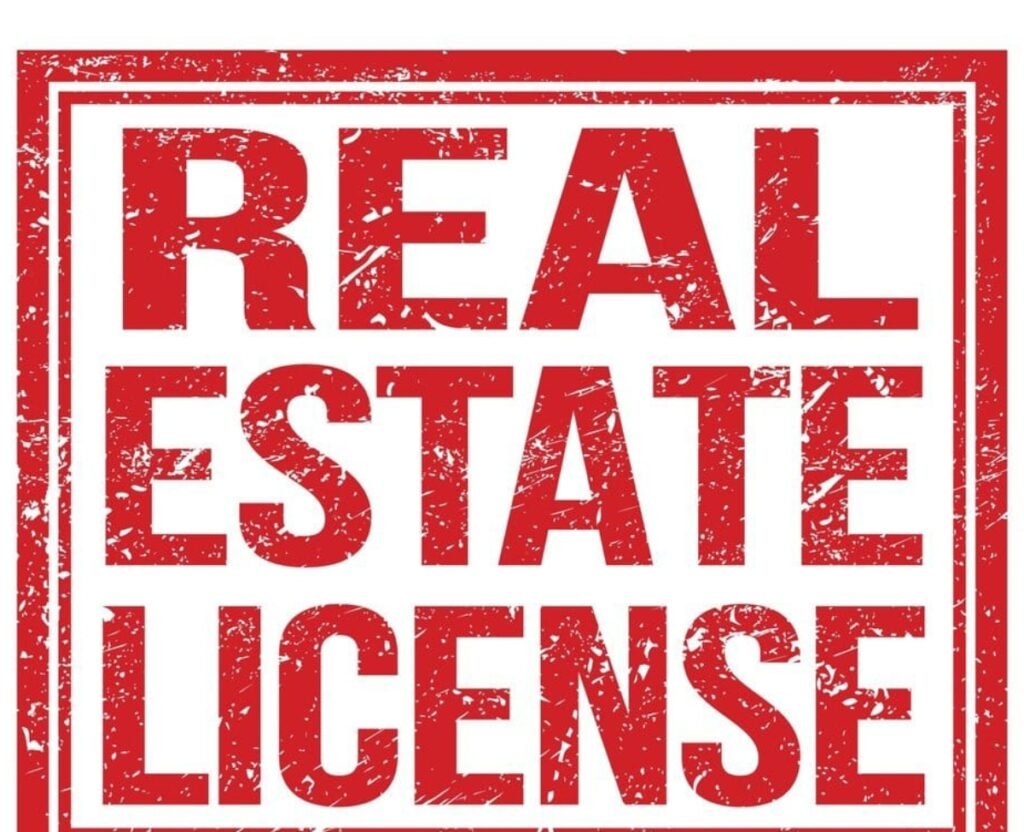Obtaining a real estate license requires substantial work collaboration with dedication during specific periods. Duration for real estate licensing depends on state regulations together with selected courses. Thus, a series of required classes expect new real estate agents to pass examinations and undergo background screening as part of the process. Therefore, the duration estimation enables candidates to design better career strategies.
Scientists have done investigations into the duration of time new agents need to finish their licensing procedure. The researchers determined that the pre-licensing education duration takes the longest. Most US states demand students to complete 60–135 hours of education before receiving their licenses. The level of study speed together with the scheduling convenience determines how long it takes to complete the program. Studies also highlight that candidates who devote consistent hours finish quickly. Licensing timelines also depend on individual discipline and available resources.
Passing the real estate license exam requires more than just completing prescribed timeframes. Therefore, this process builds knowledge and shapes the foundation of a career. Completing courses also provides valuable insights into contracts, ethics, and property laws. Passing exams also proves dedication and skills. Beyond formalities, candidates also network and gain exposure to the industry. These steps prepare agents not only to enter the market but also to succeed long-term.
Steps to Get a Real Estate License
The duration of completion depends on finishing every requirement step. Thus, the sequence of each step needs to follow the correct order.
Pre-Licensing Education Requirements to Get a Real Estate License
All candidates need to finish prerequisite courses before states will grant their insurance licenses. However, hours vary by location. Property and casualty insurance candidates in Florida need to fulfill the 63-hour requirement but Texas-based applicants must meet the 180-hour threshold. Thus, the curriculum includes three essential components which consist of property laws and contracts alongside agent responsibility education. Students who attend courses full-time will also complete their pre-licensing classes between three and six weeks.
Self-Paced or Classroom Learning to Get a Real Estate License
Students can pursue their education either by going through self-guided Internet programs or actual classroom attendance. Self-paced courses allow faster completion.
Self-paced courses allow faster completion. Classroom settings provide structure and support but may take longer. Completion time also depends on the method and study habits.

The Real Estate Exam to Get a Real Estate License
Passing the exam is mandatory for licensing. It also tests knowledge of laws and practices. However, preparing thoroughly ensures better results.
How Long to Prepare to Get a Real Estate License
Exam prep depends on individual readiness. Thus, many take 2–4 weeks to review material and practice tests. Focused efforts on weaker subject areas also can save time. Mock exams also help candidates feel confident.
Scheduling and Completing the Test to Get a Real Estate License
Scheduling the exam may take a few days to weeks, depending on slot availability. Thus, completing the test itself takes about 3–5 hours. Immediate results determine whether candidates pass.
Background Check and Application Time
Most states require a background check for licensing. Therefore, this step ensures that applicants meet ethical standards.
Completing the Background Process to Get a Real Estate License
Fingerprinting and identity verification may take several days. Some states also handle the process digitally, speeding things up. Delays occur if applicants miss the required documents.
Submitting the Application to Get a Real Estate License
After meeting all requirements, candidates submit their application. States also process these within 1–4 weeks. Online submissions ensure quicker reviews, while mail submissions add waiting time.
Post-License Training to Get a Real Estate License
Some states require additional training after passing the exam. Thus, this ensures readiness for the market.
Continuing Education Hours to Get a Real Estate License
Agents must complete 45–90 hours of post-license education within their first renewal period. Therefore, these hours build advanced skills and market knowledge. So, balancing work and classes takes about 2–3 months.
Broker Sponsorship to Get a Real Estate License
New agents often need a sponsoring broker before activating their license. Thus, finding the right brokerage can take weeks, depending on availability and preferences.
Tailoring the Process to Your Timeframe to Get a Real Estate License
Choosing the right approach makes a big difference in timelines. Flexible options also help candidates speed up the process.
Accelerated Courses to Get a Real Estate License
Many education providers offer accelerated programs. Thus, these help students complete requirements within a few weeks. Intensive also study schedules are key to faster licensing.
Study Focus to Get a Real Estate License
Staying organized and consistent reduces unnecessary delays. Setting small daily goals also ensures regular progress. Candidates who balance priorities move forward efficiently.
Impact of State Regulations
State laws determine the duration of getting a license. Each state has unique guidelines for completing steps.
Shorter Timelines in Certain States
Some states, like Alabama, allow candidates to finish quickly with only 60 hours of required training. Licensing in smaller states usually has fewer steps and shorter wait times.
Stricter States Extend Duration
States with detailed laws or higher coursework hours take longer. New York and California have strict requirements that may take months. Planning based on location avoids surprises.
Preparing Financially for the Journey
Costs are an important part of timeframes. Budgeting helps smooth the licensing process.
Course and Exam Fees
Pre-licensing courses cost between $200–$800. Exam fees add around $50–$100. Budgeting for these expenses speeds up decision-making.
Post-License Expenses
Joining brokerages and marketing requires funds. Planning finances early allows candidates to transition smoothly into their careers.
Common Mistakes That Delay Licensing
Avoiding errors ensures faster completion. Staying aware of possible setbacks keeps candidates on track.
Missing Deadlines
Falling behind on completing coursework or applications adds unnecessary waiting time. Staying proactive reduces these issues.
Unprepared Exam Attempts
Failing exams delays progress. Studying thoroughly avoids multiple retakes and saves weeks.
Real Estate Market Entry After Licensing
Getting the license is just the beginning. Entering the market takes preparation.
Building Client Networks
New agents spend weeks networking to find leads. Developing marketing materials and connecting with peers builds momentum.
Establishing Credibility
Gaining client trust might take time. Staying informed about local markets and legal updates enhances credibility.
Benefits of a Real Estate Career
The time commitment required to obtain a license will lead to multiple career opportunities. The career offers growth and flexibility.
Freedom to Choose Specializations
Agents explore residential, commercial, or luxury markets. This allows for exploring interests and aligning careers with passions.
Earning Potential
Real estate promises strong earning opportunities. A growing network and excellent service ensure steady income over time.
Unique Challenges in Licensing
Every licensing process has unique hurdles. Preparing for uncertainties minimizes stress.
Technical Difficulties
Submitting documents online may face technical glitches. Keeping backup copies avoids delays.
Regional Requirements
Local rules often confuse candidates. Researching guides and seeking support helps troubleshoot issues.
Staying Motivated During Licensing
Motivation is crucial throughout this process. Discipline ensures consistent progress.
Rewarding Milestones
Celebrating small achievements keeps spirits high. Whether completing a course or passing a mock test, rewards enhance productivity.
Peer Support Systems
Connecting with other candidates fosters accountability. Sharing experiences offers motivation during challenging stages.
Building a Career Mindset Before Licensing
Starting early prepares for long-term success. The licensing period is an introduction to a future career.
Exploring the Industry
Attending seminars or shadowing agents provides valuable learning opportunities. It builds confidence even before entering the field.
Gaining Skills
Learning how to communicate, negotiate, and market properties gives agents an edge. These skills develop customer trust from the start.
Length of Time from Start to Finish
Candidates need three to six months on average to receive a license. Obtaining a license requires three stages including education before licensing exams and ultimate approvals. With disciplined efforts, some finish within weeks.
Unique and Engaging Perspective
Getting a real estate license changes careers and lives. It requires commitment, time, and determination. But it’s worth every effort. The learning process prepares candidates with knowledge and confidence. The experience also builds personal growth. Licensing is not just a requirement; it’s the beginning of an exciting career.
Conclusion
The path to a real estate license takes time, planning, and focus. Completing each step requires effort and discipline. From pre-licensing education to entering the market, the process builds a strong foundation. It prepares individuals for long-term success. Candidates must stay organized and motivated. Choosing flexible options helps reduce unnecessary delays. Understanding state requirements ensures better planning. Success comes from consistent action. By obtaining a license, individuals access the dynamic world of real estate full of opportunities.

